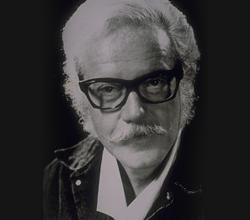This is mark Joseph “young” blog entry #196, on the subject of A Church and State Playground.
Back in the winter we noted, in web log post #158: Show Me Religious Freedom, that the United States Supreme Court was going to decide a case concerning whether a church-affiliated school could be denied participation in a public welfare program simply because it was sponsored by a religious institution. That decision has been reached, in Trinity Lutheran Church of Columbia, Inc. v. Carol S. Comer, Director, Missouri Department of Natural Resources, 582 U.S. ___ (2017), and the majority opinion is very like what we previously suggested, but there are three concurring opinions that quibble on the details and one dissent that is scathing, fairly well reasoned, and as long as the other four opinions combined.

Chief Justice Roberts delivered the opinion of the court, joined in full by Justices Kennedy, Alito, and Kagan; Justices Thomas and Gorsuch also joined the opinion, with the exclusion of “footnote 3”, and each of them filed a concurring opinion, and joined in supporting each other’s concurring opinion. Justice Breyer filed an opinion concurring in the judgement. It is Justice Sotamayer who wrote the lengthy dissent, in which Justice Ginsburg joined.
To recount briefly, Missouri runs a program which provides funding to resurface playgrounds with recycled tires. There is a tax on new tire purchases which funds the collection and recycling of discarded tires, converting these into a “pour-in-place” durable soft surface which reduces injuries on playgrounds. The application process for determining eligibility to receive such a “grant” examines many factors including the economic circumstances of the area, the public use of the playground, and more. On a list of forty-four applicants, the school ranked fifth, but did not receive one of the fourteen grants because it was affiliated with a religious institution, and the department had a policy of refusing to provide money to any religiously-affiliated institution, consistent with the Missouri State Constitution Article I, Section 7, which we quoted in the previous article. This led to a court battle over whether the State, by refusing to permit a religiously-affiliated school from participating in a program that provided aid for non-religious programs, had violated the Free Exercise Clause of the First Amendment, by making eligibility for a public assistance program dependent on renouncing a religious belief or association.
All five opinions discuss the balance between the Free Exercise Clause, that the government cannot interfere with someone’s beliefs, and the Establishment Clause, that the government cannot support one set of beliefs over another. Neither clause is exactly absolute. For example, it is agreed that the Establishment Clause does not mean that the publicly-funded fire department can’t put out a burning church or synagogue, or that the police won’t investigate a theft of church property. The Free Exercise Clause has also been tested, and laws have been overturned which prevented ordained ministers from serving in elected public office, on the grounds that such laws forced a person to choose between his religious beliefs expressed in his vocation and his right as a citizen to run for office.
A lot of the discussion on both sides concerned the previous case Locke v. Davey, 540 U. S. 712 (2004). In Locke, the State of Washington ran a post-secondary education scholarship program based on outstanding scholastic achievement, but with a specific clause stating that the scholarship money could not be used for ministerial training. The student claimed that the program was a violation of the Free Exercise Clause, but the Court held that under the Establishent Clause the State could refuse to fund ministerial training, particularly given that the program did not exclude schools which offered such courses or the courses themselves, only a degree program of that nature. They have always maintained that there was some space between the two clauses, in which States were not compelled by either to act in a particular way; the question was whether in this case the state was forced to act one way or the other, or was free to act as it chose.
The majority felt that this case was more like McDaniel v. Paty, 435 U. S. 618 (1978), in which ordained ministers were barred from seeking election to public office, and the Court held that this amounted to denying a citizen a fundamental right available to all citizens (running for public office) based solely on religious belief. The playground was not part of a religious training program, but a part of ordinary educational aid made available broadly to the community, and the church had been excluded from the program solely because it was a church, having a religious purpose in its existence. The denial of the right to participate in the program was a violation of the Free Exercise Clause, because it required the church to choose between abandoning its religious faith and participating in a common government welfare program designed for the protection of children. A significant part of the decision can summarized in the Court’s words
…denying a generally available benefit solely on account of religious identity imposes a penalty on the free exercise of religion that can be justified only by a state interest “of the highest order.”
Under such “strict scrutiny” the policy failed.
To some degree, the concurring opinions have to do with footnote 3, which reads
This case involves express discrimination based on religious identity with respect to playground resurfacing. We do not address religious uses of funding or other forms of discrimination.
Justice Thomas expressed the view that Locke failed to apply strict scrutiny to the facts in that case, and ought to be overturned–but that that was not a question before the court at this time. However, he thought footnote 3 too limiting, and deferred to Justice Gorsuch’ concurring opinion for that.
Justice Gorsuch says that the Court makes an indefensible distinction between religious status and religious use, and so distinguishes Locke from the present case. He makes the point thus, comparing the two cases:
Is it a religious group that built the playground? Or did a group build the playground so it might be used to advance a religious mission?….was it a student who wanted a vocational degree in religion? or was it a religious student who wanted the necessary education for his chosen vocation?
The only justification for the decision in Locke, in Gorsuch’ view, is the “long tradition against the use of public funds for training of the clergy”. As to footnote 3, he feared it would be misconstrued as saying that the principles on which this decision was based do not apply outside very narrow fact sets, which he thought was incorrect.
Justice Breyer put the emphasis on the fact that the program involved was intended “to secure or to improve the health and safety of children” and was in that sense not different from other public welfare programs such as police and fire protection. He did not want to extend the decision too far, but thought in this case it was a clear violation of the Free Exercise Clause, and that for programs akin to this the fact that the applicant was a religious school should not exclude it.
Interestingly, none of these opinions declared that the Missouri Constitution’s Article I section 7 was unconstitutional; the majority opinion merely stated that as interpreted by the Missouri Supreme Court it ran afoul of the Free Exercise Clause, and so would have to be understood differently in the future.

Justice Sotamayer’s dissent is long, involved, and pointed.
Her most cogent point is that the church identifies the school as part of its ministry, intended to build the foundations of Christian faith in its students, whether children of church members or others from the community. We have established that States can refuse to pay scholarships for ministerial training. It is reasonable to conclude that the State can refuse to pay for Bibles, Korans, Torahs, as well as vestments, chalices, sacramental elements. Arguably the doors, windows, roofs, and walls of church buildings are part of the ministry. We would not use government money to pay for such acoutrements, because they are in a sense part of the ministry.
Yet it is clear that this is not so.
In the wake of Hurricane Sandy, it was established the Federal Flood Insurance and Disaster Relief could be used to rebuild damaged churches, as long as it was distributed even-handedly–that is, not favoring any particular religion. So government money can be used for repairing physical plant of religious buildings.
Further, the National School Lunch Act provides discounted and free lunches to students in private and parochial schools without regard for the religious nature of the school, because lunch is neutral and it would be discriminatory against the religious choices of these families to exclude them from an otherwise neutral benefit because they are attending a religious private school.
So on the one hand we ask ourselves whether the playground is part of the ministry of the church, and in a sense it is, but in the same sense that the lunchroom is part of the ministry of the church. Indeed, from the perspective of the Christian faith, every congregant is an extension of the ministry of the church, and yet we know that people cannot be excluded from government assistance programs simply because they are members of a faith which regards all of its members as ministers. The government cannot avoid giving money to church ministries, as the church understands them, because whenever money is given to people who belong to the church, it is aiding the ministry of the church.
And on the other hand, we ask ourselves to what degree the support of the playground is supporting the religious mission of the church. In many states it is a requirement that schools include a physical education program, and although Trinity’s school is essentially preschool the playground may be necessary to their certification–that is, if all schools must have some kind of playground for physical activity, then the playground is clearly meeting a secular, a non-religious, requirement. Stating that it is a part of the ministry of the church certainly calls the matter into question, but seen in perspective, the answer should be obvious, that state money given to religious institutions for secular purposes such as meals and playgrounds are not a violation of the Establishment Clause, and might well be required, as the majority observes, under the Free Exercise clause.
None of this touches the deeper problem, that the language in the Missouri State Constitution is Blaine Amendment language, which as we observed was inserted for essentially religious (anti-Catholic) purposes. However, since no party addressed this, that issue remains for the future.
[contact-form subject='[mark Joseph %26quot;young%26quot;’][contact-field label=’Name’ type=’name’ required=’1’/][contact-field label=’Email’ type=’email’ required=’1’/][contact-field label=’Website’ type=’url’/][contact-field label=’Comment: Note that this form will contact the author by e-mail; to post comments to the article, see below.’ type=’textarea’ required=’1’/][/contact-form]











